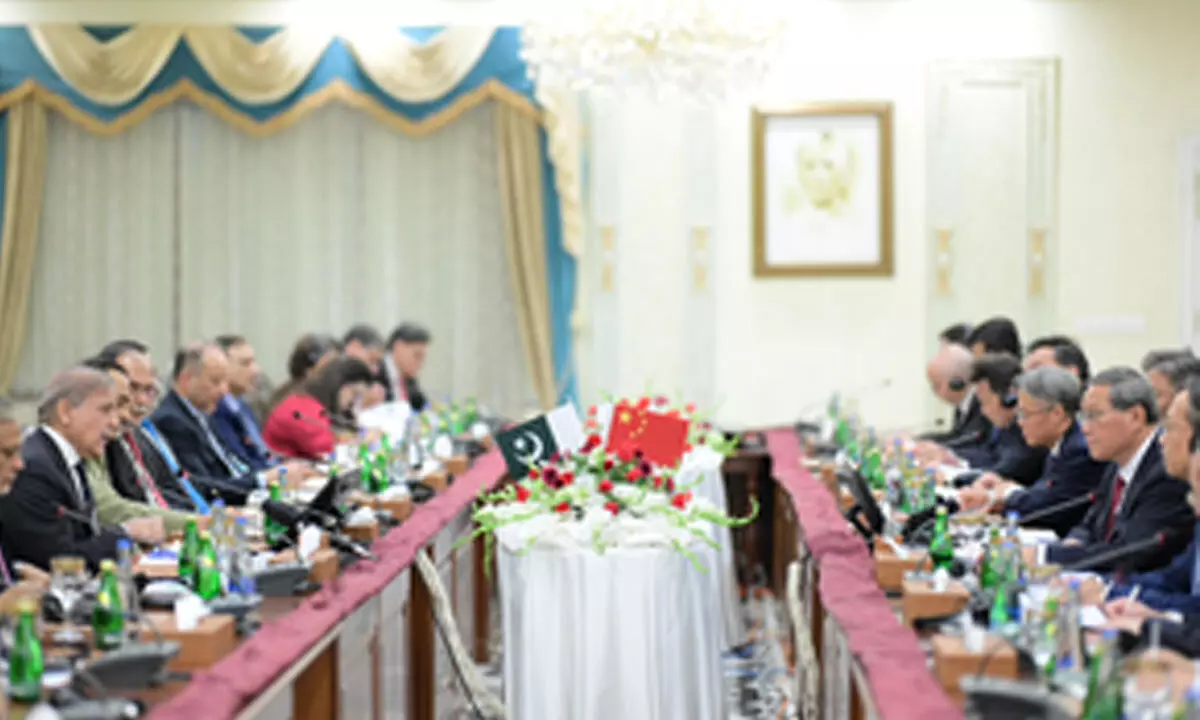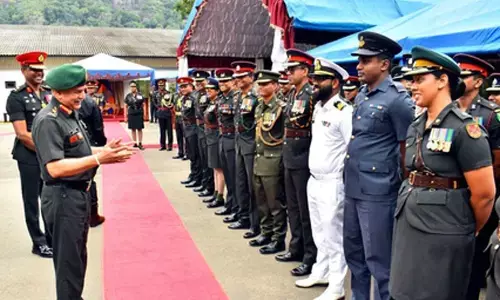Failure to protect Chinese nationals raises serious doubts on Pakistan's reliability as partner
Share :

Chinese Prime Minister Li Qiang is believed to have raised Beijing's strong concerns over the security of its nationals in the country during his ongoing visit to Islamabad - the first by a Chinese premier to Pakistan in 11 years - for the 23rd SCO meeting of Heads of Governments (HOG) that kicks off on Tuesday.
New Delhi: Chinese Prime Minister Li Qiang is believed to have raised Beijing's strong concerns over the security of its nationals in the country during his ongoing visit to Islamabad - the first by a Chinese premier to Pakistan in 11 years - for the 23rd SCO meeting of Heads of Governments (HOG) that kicks off on Tuesday.
Two Chinese citizens lost their lives in a recent suicide bombing aimed at their convoy close to Karachi's airport in Pakistan. This attack also resulted in injuries to several Pakistani police officers who were providing escort to the convoy, raising significant concerns regarding the efficacy of the security measures enacted by Pakistani authorities.
The Baloch Liberation Army (BLA) claimed responsibility for the incident, highlighting a disturbing pattern of violence directed at foreign nationals engaged in China-funded initiatives. The event occurred just days prior to Pakistan hosting an important meeting of the Shanghai Cooperation Organization (SCO), underscoring the persistent security challenges that jeopardise not only foreign investments but also regional stability.
The suicide bombing took place in a crowded area adjacent to Karachi's airport, a site that should have been under stringent surveillance. Eyewitness testimonies depict scenes of disorder following the explosion, highlighting significant failures in the security protocols intended to safeguard foreign nationals.
Despite substantial military and intelligence assets, the Pakistan Army and the Inter-Services Intelligence (ISI) have consistently been unable to avert such attacks. Their preoccupation with geopolitical strategies and internal power struggles frequently overshadows the urgent necessity to guarantee the protection of foreign nationals and vital infrastructure.
The ongoing targeting of Chinese nationals raises significant concerns regarding the capability of the Pakistan Army and ISI to ensure security. For years, these agencies have promoted their competence in managing insurgency and safeguarding foreign investments; however, the increasing frequency of attacks indicates a serious misjudgment of the threats posed by organisations such as the Baloch Liberation Army (BLA).
This is not the first occurrence of violence directed at Chinese nationals in Pakistan. The BLA has a well-documented history of targeting Chinese workers, underscoring a troubling trend that reflects not only local discontent but also a systemic failure to safeguard foreign interests.
The ongoing violence against Chinese nationals presents significant threats to Pakistan's economic prospects, especially concerning the China-Pakistan Economic Corridor (CPEC). The inability of the Pakistani Army to secure these initiatives raises concerns among investors regarding the safety of their capital, ultimately jeopardising the economic stability that the government aims to achieve.
The timing of the attack was particularly alarming, as Pakistan was scheduled to host a meeting of the Shanghai Cooperation Organisation (SCO), which kicked off in Islamabad on Tuesday, a week later. The inability to guarantee the safety of foreign nationals complicates Pakistan's diplomatic position and raises concerns about the Army and ISI's ability to address internal security threats effectively.
International responses to the attack have been prompt, with numerous countries denouncing the violence and expressing solidarity with both Pakistan and China. Nonetheless, the persistent failure of the Pakistan Army and ISI to safeguard foreign nationals raises concerns among international stakeholders regarding Pakistan's reliability as a partner.
China’s reaction will also be under close scrutiny. As a significant player in Pakistan's economic environment, Beijing has a vested interest in ensuring the security of its investments. Increased pressure from China on the Pakistani government could necessitate a reassessment of military priorities and resource distribution.







